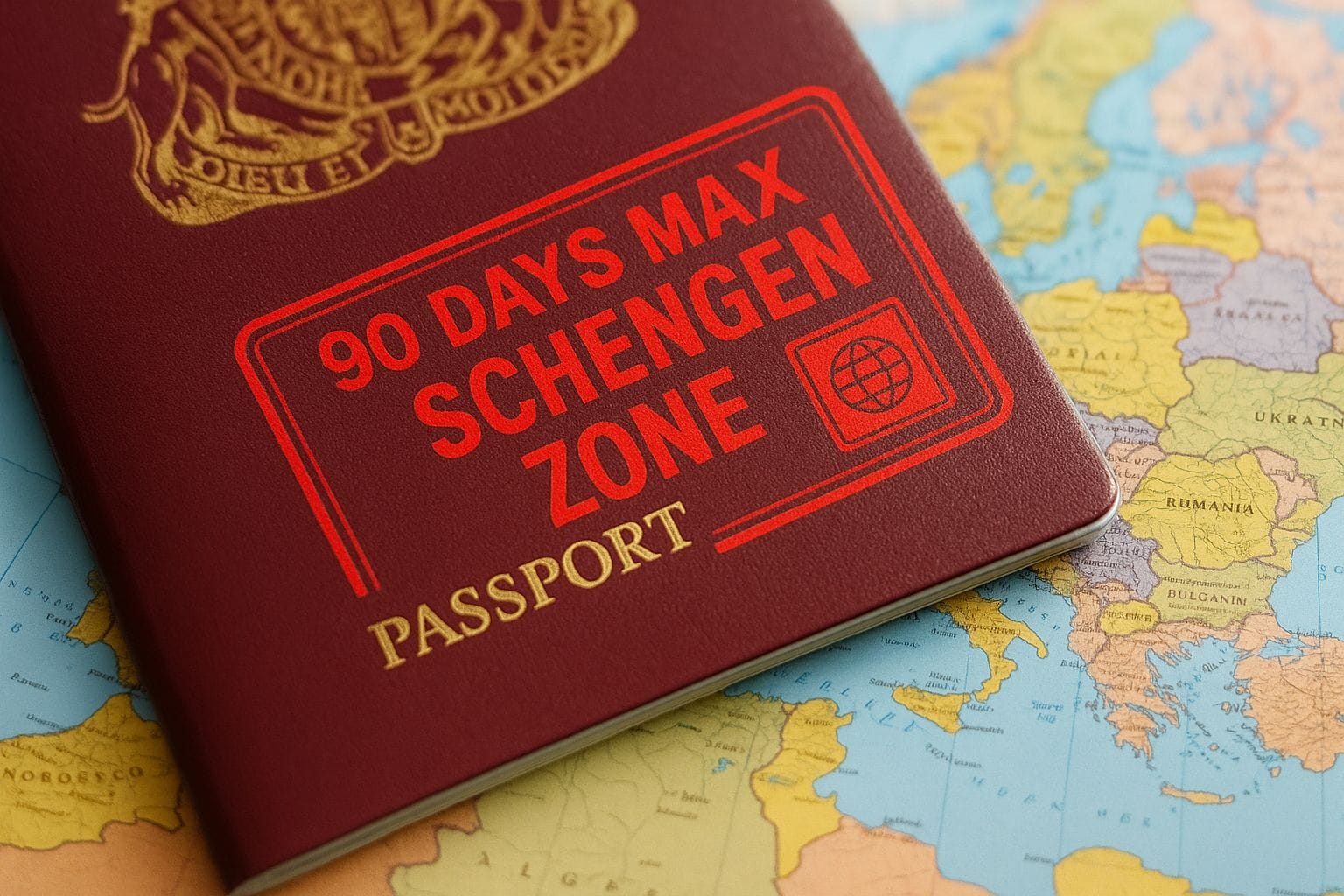UK Tourists Warned: Brexit Rule Breach Could Lead to 3-Year Schengen Ban, Says Foreign Office
LONDON — June 30, 2025
British holidaymakers planning trips to Europe have received an urgent alert from the UK Foreign, Commonwealth & Development Office (FCDO), warning that overstaying their permitted time in the Schengen Area could result in serious consequences—including deportation, fines, or even a travel ban of up to three years.
This stark advisory comes amid ongoing confusion surrounding post-Brexit travel rights and restrictions. Since the UK formally exited the European Union, British citizens are no longer entitled to the same freedoms of movement within the EU bloc that they once enjoyed. That shift has brought about key changes in how long UK passport holders can remain in countries that are part of the Schengen Area.
Understanding the 90/180 Rule Post-Brexit
Under current regulations, UK nationals can visit countries within the Schengen Zone visa-free for up to 90 days within any rolling 180-day period. This timeframe applies collectively to all countries within the Schengen Area, not individually. This means that time spent in Spain, Italy, France, Germany, or any of the 27 Schengen member states contributes to the same 90-day total.
The 180-day window is rolling, meaning travelers must continuously look back over the previous six months to calculate the number of days spent within the zone. For example, spending 45 days in France and later 30 days in Italy, with only a brief exit in between, would count as 75 days in total. If travelers reach the 90-day mark without exiting the Schengen Zone, they risk severe penalties.
The UK Foreign Office has emphasized the importance of monitoring entry and exit stamps, especially for those taking multiple trips across the continent. Digital border systems and increased data-sharing between Schengen countries are making it easier to track overstays—intentionally or not.
What Happens If You Overstay?
The FCDO warns that breaching the 90-day limit—even by a single day—can lead to:
- Immediate deportation
- Hefty on-the-spot fines
- A travel ban of up to three years from the entire Schengen Area
This means that even casual or unintentional overstays—such as extending a road trip or staying a few extra days with family—can lead to travelers being flagged, detained at border checkpoints, or refused entry on future visits.
With Europe remaining one of the top destinations for UK tourists—especially Spain, France, Italy, and Greece—the implications are serious. According to VisitEurope.com and FCDO travel data, over 15 million British nationals visited the Schengen Zone in 2024 alone.
Schengen Zone: More Than Just the EU
It is important to note that the Schengen Area and the European Union are not identical. While many EU nations are part of Schengen, some non-EU countries also participate, including Norway, Iceland, Switzerland, and Liechtenstein.
Here’s a list of Schengen Area countries relevant for UK travelers:
Austria, Belgium, Czech Republic, Denmark, Estonia, Finland, France, Germany, Greece, Hungary, Iceland, Italy, Latvia, Liechtenstein, Lithuania, Luxembourg, Malta, Netherlands, Norway, Poland, Portugal, Slovakia, Slovenia, Spain, Sweden, and Switzerland.
Bulgaria, Romania, and Cyprus are EU members but are not fully integrated into the Schengen Zone and may have separate entry requirements.
Tools to Stay Compliant
To help UK travelers avoid potential issues, the UK government and European authorities have introduced several tools:
- Schengen Calculator: Official online tools and mobile apps can help calculate stay durations within the 180-day timeframe.
- ETIAS (Coming Soon): From mid-2025, the EU will introduce the European Travel Information and Authorisation System (ETIAS), which will be mandatory for UK passport holders. This pre-travel clearance system is akin to the U.S. ESTA and will provide an extra layer of compliance tracking.
- FCDO Travel Advice Portal: Updated regularly with country-specific rules, entry requirements, and travel alerts.
Consequences for Long-Stay Travelers and Digital Nomads
The implications are particularly relevant for long-term tourists, digital nomads, and retirees—groups that frequently spend extended periods in the Mediterranean, Alps, or rural France. Without a valid long-stay visa from a specific Schengen member country, exceeding 90 days in total will be considered a violation.
For those planning extended stays beyond the 90-day rule, national long-stay visa applications (for France, Italy, Spain, etc.) must be submitted before travel. These are typically granted for study, work, or family reunification—not tourism.
Final Advice from the Foreign Office
The Foreign Office urges travelers to keep records of their Schengen stays, avoid booking spontaneous extensions without checking their visa-free allowance, and consult embassy websites for visa application support.
“Breaching Schengen entry conditions can lead to denial of entry, fines, or even bans. We urge British travelers to plan thoroughly, track their stays, and comply with local immigration rules,” said an FCDO spokesperson.
With British travel to Europe expected to surge during summer holidays and 2025 events, including the UEFA Champions League Final in Munich and major cultural festivals across the continent, understanding the post-Brexit travel rules is no longer optional—it’s essential.
For more travel news like this, keep reading Global Travel Wire
















